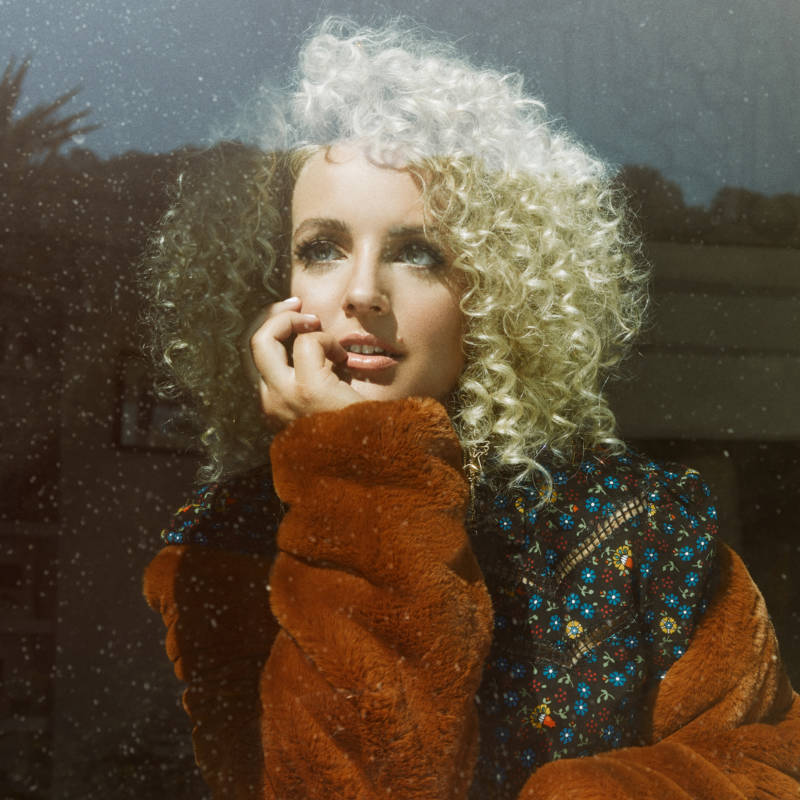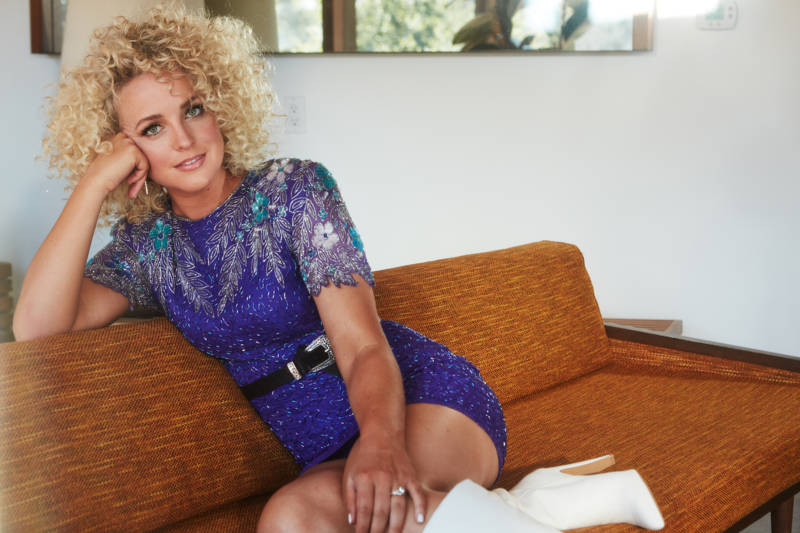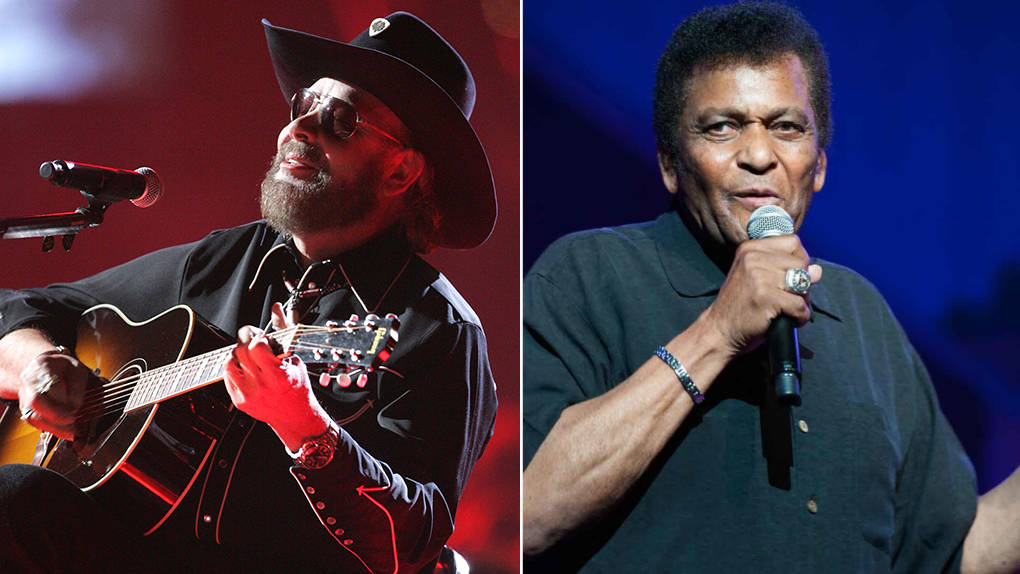“It just clicked, it was clear,” says Cam. “I would beat myself up if I didn’t give it a shot.”
So Cam packed her bags and moved to Portland—to “retire young” from working a day job, she tells me jokingly, and to focus exclusively on music. There, she began to write “Burning House,” the heartbreaking ballad that put her on the map as a solo artist. Evoking the crushing feeling of wanting to save someone who can’t be saved, the sweetly strummed song showcases Cam’s quietly profound lyrical abilities.
In a decade of ironic, detached pop, Cam went in the opposite direction, writing earnest lyrics about how much she cares—about love, relationships, her dreams. The approach proved to be refreshing for listeners. In addition to becoming certified double platinum in 2018, “Burning House” peaked at No. 2 on Billboard’s country chart and No. 29 on the Hot 100, and earned Cam a Grammy nomination in 2016.
Realizing she needed to relocate to take her career to the next level, Cam left Portland for Los Angeles, where her close collaborator Tyler Johnson introduced her to Jeff Bhasker, a songwriter and producer for pop royalty like Beyoncé, Alicia Keys and Kanye West. With Bhasker and Johnson’s help, she began crafting what would become her first major album, Untamed, released in 2015 on Sony Music Entertainment.
While Untamed was still in the works circa 2012, a friend of a friend promised to pass some of Cam’s demos to Faith Hill. (“Word to the wise, for everyone who’s starting out in the industry: they don’t know Faith Hill,” Cam says, chuckling at her naiveté at the time.) The demos ended up in the hands of an artist manager in Nashville who had previously worked with the Dixie Chicks and Tim McGraw, and he bought the rights to one of Cam’s songs for a new artist he was developing.
Ecstatic that people with industry clout saw her potential as a songwriter, Cam decided to move to Nashville in 2012. But shortly after arriving, she turned down a publishing deal as a behind-the-scenes writer, setting her sights on her own solo career.
“It always feels so statistically impossible to make it in music, so whenever anything happens you get so overjoyed,” Cam says of the difficult decision to turn down the offer. “I’m glad I was a little older at that point, and I had some savvy, Bay Area ‘I know what things cost in real life.’ I knew I was worth more than this.”
She was right—as the success of Untamed would later prove.
As Cam worked on Untamed, her profile as a songwriter continued to grow. She co-wrote “Maybe You’re Right” for Miley Cyrus’ 2013 album Bangerz, pairing lovelorn lyrics sung in a contemporary country croon with Johnson’s anthemic, kick drum-driven pop beat. Cam was accustomed to solo writing sessions with her acoustic guitar, and had never written lyrics to an already-finished pop instrumental. Not to mention, she had attempted to keep up in the “smoking department” with some of the rap producers Cyrus enlisted for the album, she remembers.
“They closed me in the vocal booth and just put the song on loop. It felt like it was hours, but I’m sure it was five minutes,” she says. To Cam’s surprise, Cyrus loved what she came up with.
Following the success of Untamed, Johnson invited Cam into the studio to work with another high-profile client, Sam Smith. The British hitmaker was instantly charmed by the warm, sparse melody Cam strummed on her Gretsch Falcon guitar, as well as her lyrics about how falling in love, no matter the outcome, is “never a waste of time.”
The track they collaborated on ended up becoming “Palace” for Smith’s 2017 The Thrill of It All, and the album hit No. 1 on Billboard. Smith invited Cam open for them on their 2018 tour (Smith uses they/them pronouns), where the two musicians sang “Palace” as a duet in arenas across North America. “To have Sam Smith sing your words back to you is nuts!” Cam says excitedly.
Cam’s reached crucial milestones of music-industry success, and in keeping with the Bay Area’s tradition of activism, she uses her position to advocate for social change. She’s a member of the Recording Academy’s Task Force on Diversity and Inclusion. And although she’s pleased that conversations about gender are opening up in country music (honoring the genre’s women trailblazers, Carrie Underwood, Dolly Parton and Reba McEntire host this November’s Country Music Awards), she’s quick to note how country’s gatekeepers have all but erased many of the genre’s black originators. “It was a segregated country, so it’s a segregated genre,” Cam says.




